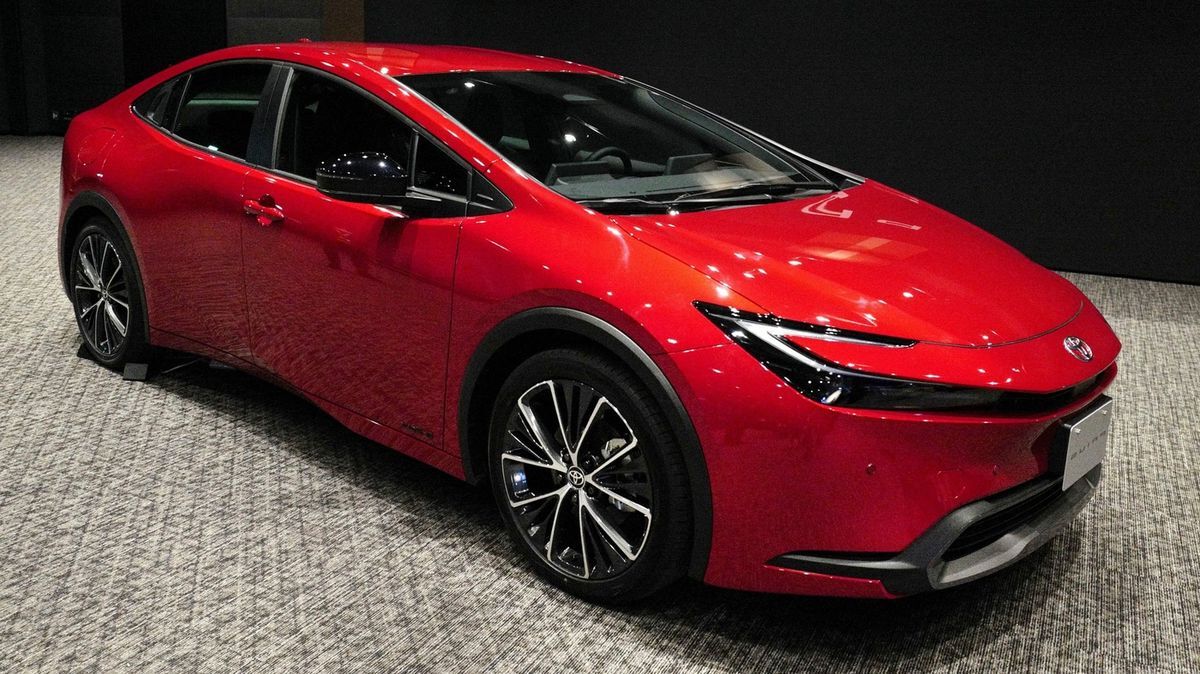
Hybrid vehicles have become a popular choice for many drivers. But what makes them so special? Hybrid cars combine a gasoline engine with an electric motor, offering better fuel efficiency and lower emissions. This means fewer trips to the gas station and a smaller carbon footprint. They also come with cool features like regenerative braking, which captures energy usually lost during braking and uses it to recharge the battery. Plus, many hybrids can switch between electric and gas modes, giving you flexibility on the road. Curious about more? Here are 26 facts that will help you understand why hybrid vehicles are changing the way we drive.
What Are Hybrid Vehicles?
Hybrid vehicles combine a traditional internal combustion engine with an electric motor. This combination aims to improve fuel efficiency and reduce emissions. Let's dive into some fascinating facts about these innovative vehicles.
-
The first hybrid car was developed in 1899 by Ferdinand Porsche, called the Lohner-Porsche Mixte.
-
Hybrid vehicles can switch between the gasoline engine and electric motor, or use both simultaneously.
-
Regenerative braking in hybrids captures energy usually lost during braking and uses it to recharge the battery.
-
Plug-in hybrids (PHEVs) can be charged using an external power source, unlike traditional hybrids.
-
Toyota Prius, launched in 1997, was the first mass-produced hybrid car.
Benefits of Hybrid Vehicles
Hybrid vehicles offer numerous advantages, making them a popular choice for eco-conscious drivers. Here are some key benefits.
-
Hybrids generally have lower emissions compared to conventional gasoline vehicles.
-
They often achieve better fuel economy, saving drivers money on gas.
-
Many hybrids qualify for tax incentives and rebates, reducing the overall cost of ownership.
-
Hybrids tend to have higher resale values due to their fuel efficiency and eco-friendly reputation.
-
They can operate in electric-only mode for short distances, reducing noise pollution.
How Hybrid Vehicles Work
Understanding how hybrid vehicles function can help appreciate their complexity and efficiency. Here are some insights.
-
Hybrids use a combination of a gasoline engine and an electric motor to power the vehicle.
-
The electric motor assists the gasoline engine during acceleration, reducing fuel consumption.
-
Hybrids have a battery pack that stores energy for the electric motor.
-
The gasoline engine can recharge the battery while driving, ensuring the electric motor always has power.
-
Some hybrids use a continuously variable transmission (CVT) for smoother acceleration and improved fuel efficiency.
Types of Hybrid Vehicles
There are different types of hybrid vehicles, each with unique features and benefits. Let's explore these variations.
-
Parallel hybrids use both the gasoline engine and electric motor to drive the wheels simultaneously.
-
Series hybrids rely solely on the electric motor to drive the wheels, with the gasoline engine acting as a generator.
-
Plug-in hybrids (PHEVs) can be charged externally and have larger battery packs for extended electric-only driving.
-
Mild hybrids use a smaller electric motor to assist the gasoline engine but cannot operate in electric-only mode.
-
Full hybrids can run on the gasoline engine, electric motor, or a combination of both.
Popular Hybrid Models
Several hybrid models have gained popularity due to their performance, efficiency, and reliability. Here are some notable examples.
-
Toyota Prius remains one of the best-selling hybrids worldwide.
-
Honda Insight offers a sleek design and impressive fuel economy.
-
Ford Fusion Hybrid combines a comfortable ride with excellent fuel efficiency.
-
Chevrolet Volt, a plug-in hybrid, provides an extended electric-only range.
-
Hyundai Ioniq Hybrid boasts a stylish design and advanced technology features.
Future of Hybrid Vehicles
The future of hybrid vehicles looks promising as technology continues to evolve. Here are some trends to watch.
- Advances in battery technology will likely increase the electric-only range of hybrids.
The Future of Hybrid Vehicles
Hybrid vehicles are more than just a trend. They offer a sustainable and efficient alternative to traditional gas-powered cars. With improved fuel economy, reduced emissions, and advanced technology, hybrids are paving the way for a greener future. As battery technology continues to evolve, we can expect even better performance and longer ranges. Governments worldwide are also supporting this shift with incentives and regulations that favor eco-friendly transportation.
For those considering a new car, hybrids present a compelling option. They combine the best of both worlds: the reliability of a combustion engine with the eco-benefits of electric power. Whether you're an environmentalist or just looking to save on fuel costs, a hybrid vehicle might be the perfect choice. Keep an eye on this space; the future of driving is undoubtedly hybrid.
Was this page helpful?
Our commitment to delivering trustworthy and engaging content is at the heart of what we do. Each fact on our site is contributed by real users like you, bringing a wealth of diverse insights and information. To ensure the highest standards of accuracy and reliability, our dedicated editors meticulously review each submission. This process guarantees that the facts we share are not only fascinating but also credible. Trust in our commitment to quality and authenticity as you explore and learn with us.


